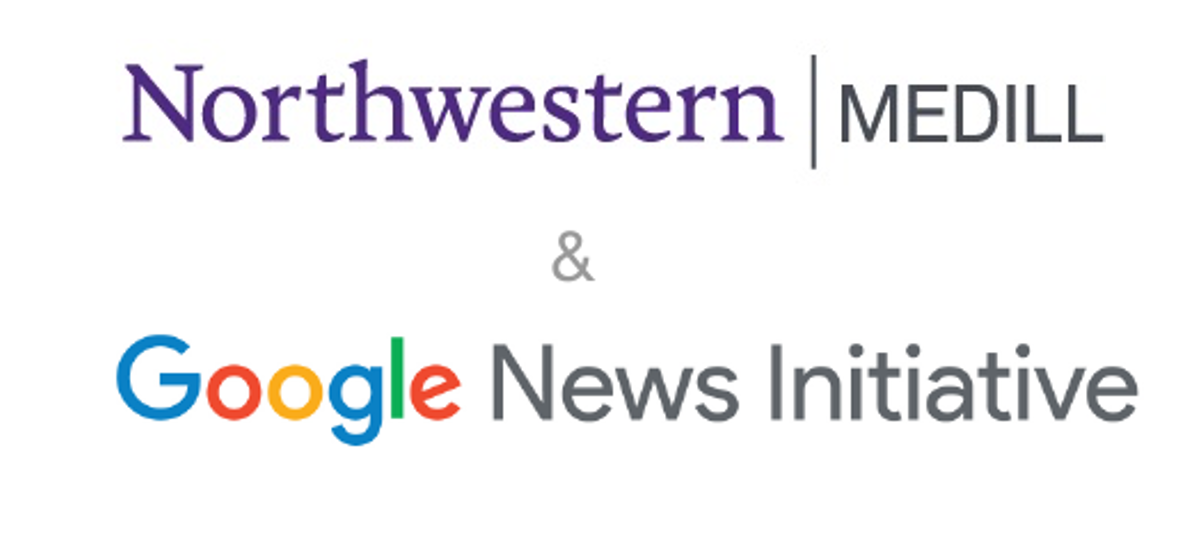Google News Initiative and Medill’s Knight Lab Empower Local Investigative News
 Published May 24, 2023
Published May 24, 2023
In collaboration with the Google News Initiative, Northwestern’s Medill School of Journalism, Media, & Integrated Marketing Communications and the Knight Lab launched the Data-Driven Reporting Project (DDRP) in 2021 with the aim of providing resources to investigative newsrooms and freelancers serving local and underrepresented communities. Jeremy Gilbert, the Knight Lab’s Knight Professor in Digital Media Strategy, helped bring Medill and Google together. A project dedicated to helping journalists use data to tell stories provided the perfect collaboration opportunity for the Google News Initiative and the Knight Lab, who are both committed to furthering the creation of tools and technology for journalism.
Any journalist hoping to use data in their investigations is welcome to apply to the DDRP. The Knight Lab selects a panel of journalism industry leaders and experts to read the applications and select the most compelling proposals. The first call for proposals was in 2022, in which the Knight Lab distributed nearly $1 million in Google-provided funding to 22 newsrooms, several of which have now published their investigative reporting. The newsrooms also received free support and training in tools like Pinpoint and Harvester, services developed by Google to make it easier to store and manage data.
“It's meant to kickstart these important investigative projects and to create case studies that we can show to other newsrooms,” Gilbert said. “We’re trying to say, ‘Here's a small newsroom serving the Pacific Northwest indigenous communities, and they're doing this work. You can do this, too.’”
 Newsrooms were selected to receive funding based on several factors. The story’s originality, realistic impact, likelihood of complete execution, and degree of public interest were all taken into consideration by a panel of journalism industry experts selected by the Knight Lab. The Albany Times Union, being among the selected newsrooms, used the funds to embark on a yearlong investigation on the use of restraint and seclusions in schools across the nation. Data Reporter Emilie Munson was part of the team that uncovered the story.
Newsrooms were selected to receive funding based on several factors. The story’s originality, realistic impact, likelihood of complete execution, and degree of public interest were all taken into consideration by a panel of journalism industry experts selected by the Knight Lab. The Albany Times Union, being among the selected newsrooms, used the funds to embark on a yearlong investigation on the use of restraint and seclusions in schools across the nation. Data Reporter Emilie Munson was part of the team that uncovered the story.
“We were really excited to know that this kind of opportunity was available,” she said, “because we hadn't seen a lot of other funding opportunities that were specifically intended to support data journalism and were this flexible and this generous.”
Munson and her coworkers put most of the funding toward Amazon Textract, a tool that extracts information from image-based PDFs. It saves the manual effort of reading and transferring the data by hand. They were dealing with more than ten thousand pages of restraint and seclusion records. Going through those documents manually would have taken months. As a result of the Times Union’s investigation, the New York State Education Department is considering updates to their restraint and seclusion policies, hoping to collect public input before making any changes. The Times Union’s reporting also won the New York Press Association’s Best Use of Freedom of Information Act Award and Best Investigative Reporting Award, in addition to placing third in the overall Education Reporting category.
 A Toronto-based paper called The Local was also among the newsrooms who received funding. Inori Roy, Associate Editor and regular writer, led an investigation that revealed the deadly inequality in road safety and neighborhood safety between wealthy and lower-income communities. She put the DDRP funding toward paying for data visualization and labor costs.
A Toronto-based paper called The Local was also among the newsrooms who received funding. Inori Roy, Associate Editor and regular writer, led an investigation that revealed the deadly inequality in road safety and neighborhood safety between wealthy and lower-income communities. She put the DDRP funding toward paying for data visualization and labor costs.
“The story was well-read,” she said, “and we got a lot of feedback from road safety organizations saying that they appreciate it and that we had amalgamated all the information they'd been aware of but hadn't been able to put into numbers over the years. There were a couple of councilors who had been found to be relatively inactive when it came to road safety measures, and a couple of those people reached out to us and said that they were planning to revamp the way they did those road safety measures.”
In addition to direct funding, the DDRP also supported the newsrooms with training in data processing tools and data storytelling.
“I learned how to use DocumentCloud as a result of those workshops,” said Roy. “We also did a workshop on Google Pinpoint, and there was training on Google Trends that proved quite useful. They're also unveiling Google Harvester, which is associated with Pinpoint and helps to parse through PDFs and extract information. These were incredibly helpful in terms of future projects that we're hoping to do.
“It feels like a really daunting process to apply for a grant because in journalism I think we have a sense that we should constantly be conservative with our estimate of the value of our work,” she added. “But I think the important thing to remember is that the DDRP wants to be able to support its journalists, and if they're going to give you this money they're not doing it so that you can undervalue yourself. In the process of applying, be willing to ask for the money that it'll really take to do this project rather than taking the safe approach and only asking for the money that you think you'd be able to get.”
The DDRP just announced the Spring 2023 Awardees and will be opening a second call in the fall, with the goal to award at least $2 million to support newsrooms in their investigative reporting and to pursue more funding to help them continue their support into 2024 and beyond.
“We want to continue the project, offering financial awards and ongoing training,” said Gilbert. The Knight Lab and the Google News Initiative are also planning for collaborative projects beyond the DDRP, such as one digging into what news customers need and want from the journalism industry.
“I anticipate we will continue to work closely with the Google News Initiative,” he said. “Their style of working and their desire to help professional journalism is very aligned with the Knight Lab.”